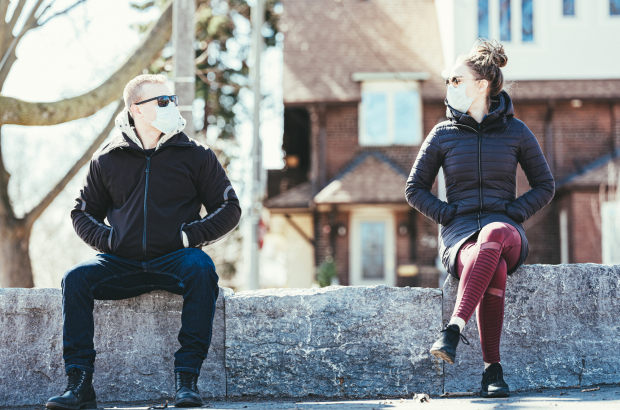- Daily & Weekly newsletters
- Buy & download The Bulletin
- Comment on our articles
Covid survey shows rise in depression and anxiety
The latest Covid-19 survey by science institute Sciensano shows a downturn in people’s mental and social health as a result of the pandemic, with one in five respondents suffering with feelings of depression.
The fifth edition of the survey was carried out between 3 and 11 December, with the results presented at this morning’s pandemic briefing. Of the 30,000 respondents, 64% said they were unhappy with their social contacts, almost double the percentage in the previous survey in September (34.5%), when restrictions on socialising were more relaxed. The number of people feeling they lack social support also increased, from 30% to 40% of respondents.
Anxiety and depressive disorders have also increased and are now at 23% and 20% respectively. These disorders are more common than when the previous surveys were carried out in June and September. The increase in anxiety appears to be related to the evolution of the number of infections, while feelings of depression seem to follow the evolution of restrictions to stop the virus’s spread.
Young people aged 18 to 24 are one of the most vulnerable groups in this psychosocial crisis, according to virologist Steven Van Gucht. “Their use of alcohol, tobacco and narcotics has declined, perhaps because people don’t go out any more, or very little,” he said, “while the use of sleeping pills and sedatives has increased.”
Of those who drink alcohol, 29% say they are consuming less during the pandemic than they did previously, while for 20% their consumption has increased. 39% of smokers say they smoke more than before, while 20% say they smoke less. 21% of people surveyed take sleeping pills or sedatives, and 42% of those people started or increased their consumption since the corona crisis began.
With Belgium’s vaccine programme due to begin on 28 December, the survey also asked people their feelings about vaccination. 60% said they would like to be vaccinated, an increase of 10% compared to the previous edition. 25% of people still have doubts, with 15% not wanting to be vaccinated.
The main motivation for those who would be vaccinated is the desire to return to normal life, while those against cited possible side effects and the lack of knowledge about the long-term effects. 90% of respondents agree that health professionals should be the first priority group for vaccination, followed by those at high risk due to illness or old age.
Almost 30,000 people took part in the survey, with more than two-thirds coming from Flanders.
Photo: Getty Images/Sisoje


















